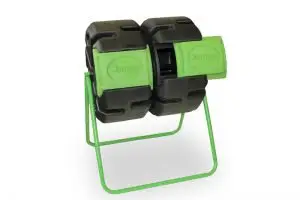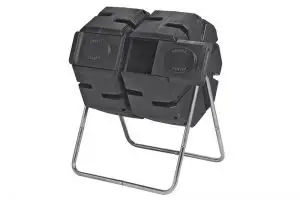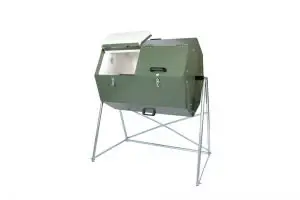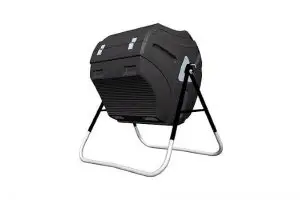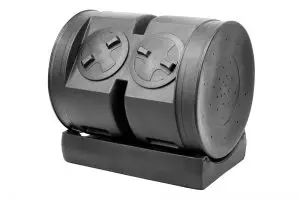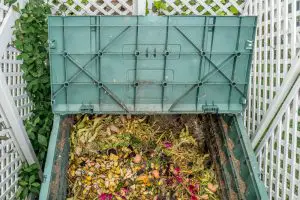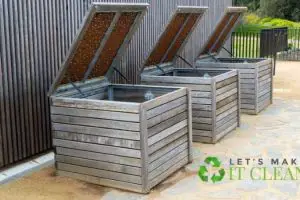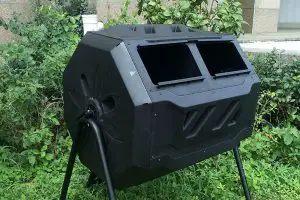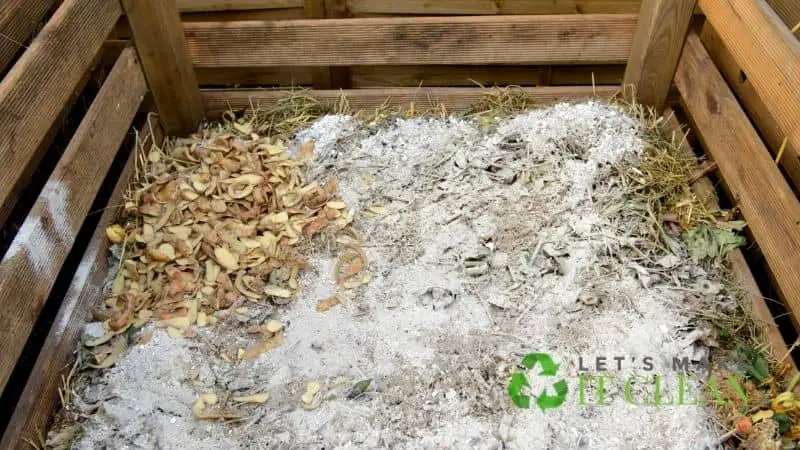Yes. It is okay to put toilet paper in a composting toilet. The toilet paper is compostable though some types of toilet paper take longer to compost than others.
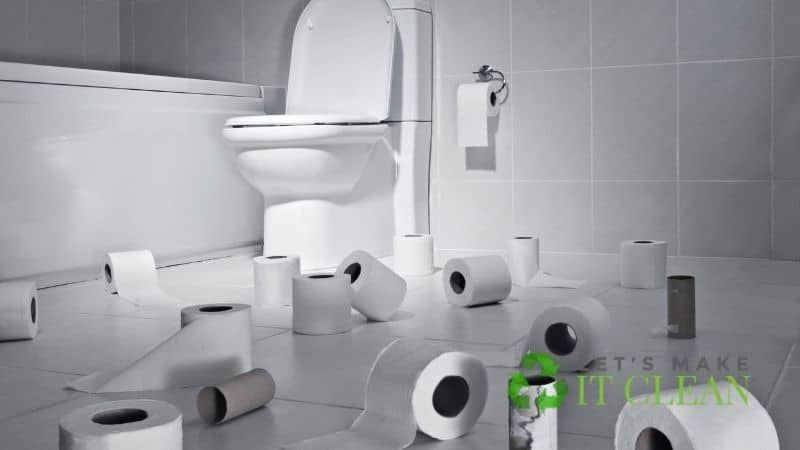
This is because of the material used to make a specific type of toilet paper. Some toilet papers are thicker than others, meaning they will need more time to break down.
Quick Navigation
- Can You Put Toilet Paper in a Composting Toilet?
- Where Do You Put the Toilet Paper in Composting Toilets?
- Can You Dispose of Tampons in a Composting Toilet?
- Is There a Limit on How Much Toilet Paper I Can Put in a Composting Toilet?
- Compost Toilet Papers Capacity Calculations
- Can You Put Wet Wipes in a Composting Toilet?
- Conclusion
Investing in a composting toilet gives some people a bit of trouble. During the first days, you will wonder whether you should put toilet paper in the compost toilet. At other times you will be worried about smells or even whether it is okay to pee in the composter.
Can you flush down used toilet paper in the composting toilet? Will it cause any trouble? Well, this article has all the information you need to answer all your questions.
Can You Put Toilet Paper in a Composting Toilet?
With the invention of flush toilets, toilet paper has been designed to break down once it touches water. The question becomes whether the same toilet paper will break down in a waterless toilet system or composting toilets.
The good news here is that just like regular paper, toilet paper is also compostable. This means that once you add it to your compost pile’s content, it will decompose to give you quality compost.
Toilet paper is a natural material that eventually breaks down provided you create an environment that helps it disintegrate. That is where a composting toilet comes in. The toilet creates the appropriate environment needed to compost toilet paper.
On the other hand, toilet paper takes varying times to decompose due to the type of material used in making it. Some of the best toilet papers are made from virgin wood fibers, bamboo, sugarcane, and recycled material, including newspaper.
Apart from these materials, manufacturers use other ingredients to give your toilet paper the color and strength it has. The materials range from chemical sulfates to bleaches. The chemical sulfates are used to help in the breakdown of the toilet paper. Bleaches added include chlorine dioxide, peroxide, and sodium hydroxide.
Where Do You Put the Toilet Paper in Composting Toilets?
Unless the composting toilet comes with instructions of where people should put the toilet paper, dispose of it off in the compost toilet.
The compost toilet offers a range of benefits that make it possible to use in your home or RV.
For one, the compost toilet is a waterless system meaning you don’t need to connect it to the sewer system. This may sound like it does not favor the toilet paper, but don’t worry since once the toilet paper is in the compost pile, it will get into contact with moist content and break down.
There are no chemicals used in the composting toilet that some sanitation systems use. You do not need to add any chemicals to decompose the liquid human waste and solid waste.
You should not be worried about any chemical reactions resulting from when the material used to make toilet paper comes into contact with the compost pile.
Composting toilets are hygienic, and using toilet paper maintains hygiene. The sanitation systems end up getting waste from these toilets to treat the waste to clean drinking water and compost for use in the soil.
Also, there is no hygiene compromise compared to using regular toilets. With these toilets, you have the freedom to use toilet paper and add them to the compost pile.
Homes that have these composters save the cost of buying fertilizer. Users of the same composters help nature by utilizing most of the waste from different places to avoid pollution of water bodies.
Once you dispose of the toilet paper in the toilet, you are helping the environment. This is because you will be responsibly getting rid of waste and creating beneficial compost simultaneously. You will be aiding the natural recycling of organic matter to form nutrients for farm use.
Toilet paper disposed of in a composting toilet is odorless. There is no risk of getting unwanted smells from the composting toilet once you add toilet paper. The toilet paper has an advantage because it soaks up some of the liquid waste in a pile.
Since human waste decomposition takes a long time, you will also experience delays in getting compost from adding toilet paper to your piles. Nonetheless, the delay is worth it because you will be playing your part in environmental conservation.
If you want a complex computing toilet that eases up the decomposition process, you must have more accessories. The accessories will help compost matter, such as toilet paper and peat moss that you add.
Whenever you buy a composting toilet with two different holes for liquid and solid waste, place the toilet paper in the solid waste hole.
Can You Dispose of Tampons in a Composting Toilet?
It would be best to avoid placing tampons in a composting toilet because most of the feminine hygiene products people use are made with plastic elements. To make things worse, some of these plastics used to make the tampons are not biodegradable.
If you add them to your composting toilet, they will not biodegrade no matter how much water, urine, or organic material is in there.
On the other side, if you are positive that the tampons you are using don’t contain any plastic, you are free to put them in the bathroom. Additionally, tampons made with biodegradable plastic are safe, and you can put them in toilets.
Just like tissue paper, these tampons from companies that process biodegradable tampons will break down over time when they mix with other materials in a pile.
Eventually, you will benefit from microbes working on the tampon waste. If you are not sure about the materials, please be cautious.
Is There a Limit on How Much Toilet Paper I Can Put in a Composting Toilet?
The toilet’s capacity is the only limit on how much toilet tissue paper you can put in a composting toilet. If your toilets have a big capacity, you can add more toilet paper.
Similarly, if the toilet capacity is small, you will have to add amounts of toilet paper that do not lead to sewage overflows from the bathroom.
Using more toilet paper will demand that you empty the composting toilet often. Your toilet’s capacity, therefore, determines the limit of how much toilet paper you use.
After emptying the poop, a person who chooses to use a lot of water to clean the toilet seat, the toilets from the RV or home, get rid of smells.
A few food scraps, small amounts of wood shavings from trees, and other light organic matter components are added to the composter to solve a problem of excess water or moisture content.
Here are more details on the toilet’s capacity.
Compost Toilet Papers Capacity Calculations
Determining a toilet capacity is the work of the manufacturer or toilet designer.
A barrel composting toilet follows the batch method of composting. Fresh human poop is segregated from the older human feces in the primary stage of the composting process.
A design based on a holding capacity of 55 gallons serves as the composting chamber. This is where the waste will be composted for some time before you empty it.
The barrel’s contents are emptied and left for months before you can add any fresh contents or take it to the farm. These months, the barrel’s content is left to continue composting is known as the aging period.
If you have more people using the bathroom, you will need more barrels or waste storage containers to hold the frequently coming composting waste.
Can You Put Wet Wipes in a Composting Toilet?
Most wet wipes manufacturers in the world produce wet wipes that contain plastic. For this reason, avoid putting wet wipes in composting toilets. If you put these wet wipes that contain plastic in the composting system, they will not be fully composted.
Only most of the compostable materials will be composted. As a result, using the compost in the soil will add plastic materials to it.
Plastic materials in the soil are harmful since it destroys the soil structure. Therefore, plants will not grow well since their roots cannot go through the solid particles created by the plastic materials.
The percentage of manufacturers in the world who make wet wipes that are 100% organic add benefits to the composting industry. You are free to put wet wipes made of bamboo or cotton in a compost toilet.
To know the components that have been used to make the wet wipes you are using, read the manufacturer’s instructions on the label. If they are suitable for home composting, you can go ahead and add these wipes to your composting toilets.
If you realize that the wet wipes can only be composted in an industrial facility, they demand specific conditions. Suppose you put these wet wipes in the regular composting bathroom, the conditions they demand will not be met.
As a result, they will not compost, meaning you will be left with uncomposted wet wipes or half-ready compost. A good idea is to put these wet wipes in a compost bin for sanitation.
Conclusion
In conclusion, it is possible to create fertilizer from composting toilet paper in composting toilets. The only thing you have to do is provide the conditions necessary for it to break down.
These conditions are easily met since they are precisely the conditions required to compost solid human waste. Avoid adding tampons and wet wipes that are not 100% made from natural organic matter in these systems.

